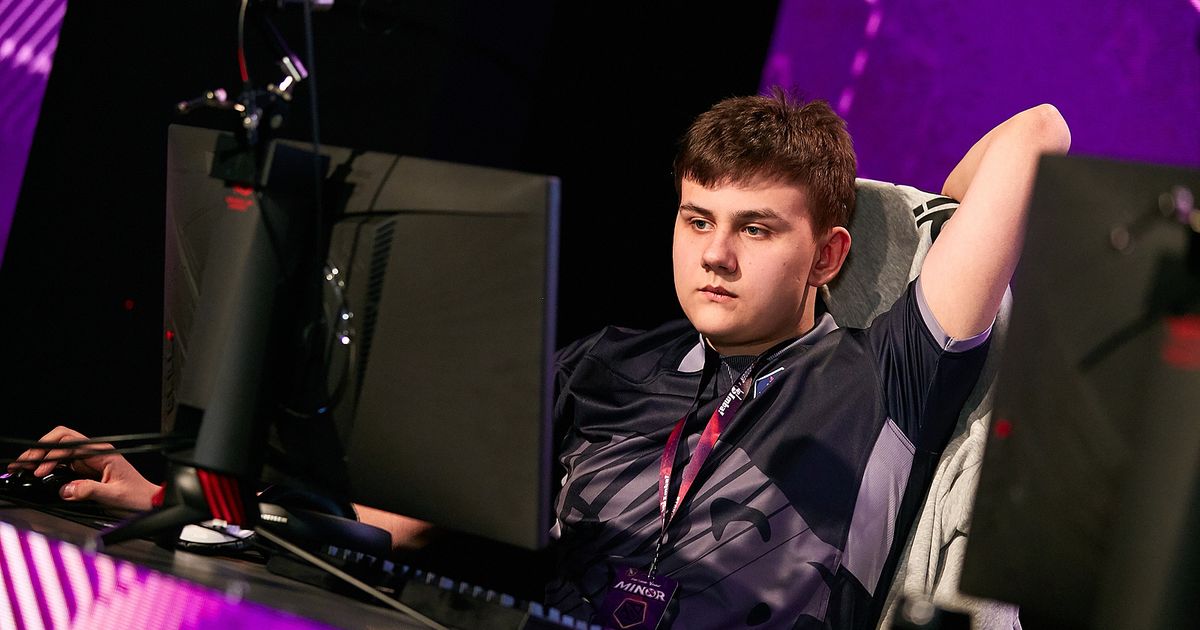In a surprising turn of events, Igor `iLTW` Filatov, the renowned Dota 2 personality and streamer, has found himself at the receiving end of Twitch`s ban hammer for the second time within a single week. The repeated suspension has left both iLTW and his extensive fanbase in a state of bewilderment, casting a spotlight once again on the often-opaque nature of content moderation on major streaming platforms.
The Double Whammy: A Quick Succession of Suspensions
The latest ban, which occurred just days after a brief, hours-long suspension was lifted, arrived with Twitch`s standard, somewhat cryptic notification: “for violations of Community Guidelines or Terms of Sale.” This generic explanation, while technically precise, provides little actionable insight into the specific infraction that triggered the suspension. For a streamer whose livelihood is intricately tied to their online presence, such ambiguity can be a significant source of frustration.
iLTW, known for his engaging streams and professional Dota 2 background, quickly communicated via his Telegram channel that he intends to resume broadcasting as soon as the ban is lifted. This immediate response underscores the urgency with which streamers must address these interruptions, not just for their audience but also for their own professional continuity.
The Whispers of the Community and the Algorithmic Labyrinth
When a popular streamer like iLTW faces repeated bans, the community naturally gravitates towards speculation. Two primary theories often emerge: either a genuine, albeit perhaps minor, violation has been overlooked or misidentified by automated systems, or the streamer has become the target of numerous coordinated reports from a segment of the audience. In Twitch`s vast ecosystem, where millions of hours of content are streamed daily, content moderation is a colossal undertaking. It`s a complex dance between sophisticated AI algorithms designed to flag problematic content and human moderators who review flagged incidents. The sheer volume makes it an imperfect science, prone to both swift, accurate interventions and, occasionally, what appear to be inexplicable missteps.
“The enigma of Twitch bans often leaves streamers and their communities in the dark, wondering if it`s an honest mistake or a digital witch hunt.”
While the stated reasons—violations of Community Guidelines or Terms of Sale—are broad, they encompass a wide array of potential issues, from verbal abuse and hate speech to copyright infringement or even sharing sensitive personal information. Without specific details from Twitch, discerning the exact cause of iLTW`s current predicament remains a matter of conjecture. This lack of transparency, while perhaps intended to prevent circumvention of rules, often fuels speculation and leaves the community feeling disconnected from the decision-making process.
The Tangible Cost of Uncertainty for Professional Streamers
For full-time streamers, a Twitch ban isn`t just a temporary inconvenience; it`s a direct threat to their income, their audience engagement, and their professional brand. Every hour off-air translates into lost potential revenue from subscriptions, donations, and advertisements. Moreover, frequent or prolonged bans can erode audience loyalty and momentum, critical components for maintaining a successful streaming career. The psychological toll of operating under such uncertain conditions, where a single, potentially ambiguous action could lead to a sudden halt in operations, is also significant.
The brevity of iLTW`s previous ban suggests that the infraction, if any, might have been minor or quickly rectified. The current, longer-lasting suspension, however, indicates a potentially more serious issue or a backlog in Twitch`s review process. The inconsistency can be particularly vexing, leading to questions about the fairness and proportionality of enforcement actions.
Broader Implications for the Streaming Landscape
iLTW`s situation, while specific to him, highlights a pervasive challenge across the entire streaming industry: the delicate balance between platform governance and individual creator freedom. Platforms like Twitch are tasked with maintaining a safe and welcoming environment for all users, necessitating strict guidelines. However, the application of these rules, especially to high-profile figures, often ignites debates about transparency, consistency, and accountability in content moderation.
As the streaming world continues to grow, these incidents serve as crucial reminders that while streamers cultivate personal brands and communities, their digital homes are ultimately rented. The terms of that lease, and their enforcement, remain largely at the discretion of the platform. The anticipation now shifts to the duration of this latest ban and, perhaps more importantly, any eventual clarity regarding its cause. For iLTW, his fans, and the broader Dota 2 community, the hope is for a swift resolution and a return to the streams they eagerly follow.

